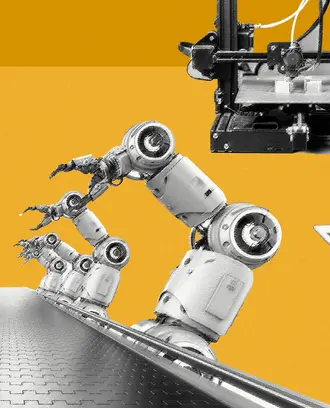Productivity
3 practices for effective work in a remote world
COVID-19 forced many employees into a new normal of remote work. To stay productive, it’s important to build mental resilience, stay flexible, and embrace paper trails.
First, after offices shutdown, came the acute technical crises: How do you procure 15,000 laptops for homebound employees? How do you protect privacy remotely? How do you defend against cyberattacks when your company is at its most vulnerable?
Companies that were able to navigate these issues quickly realized that more complex challenges loomed on the horizon.
“There is a seismic shift we’re all having to make as we move from one kind of normal to a completely new normal,” said Keith McCambridge, a partner in the organizational effectiveness practice at Oliver Wyman.
With colleague Paul Mee, head of Oliver Wyman’s cybersecurity practice, McCambridge took part in an online conversation hosted by MIT Sloan Management Review, about effective work in a remote world.
Here are three key takeaways:
Sustain productivity
After shelter-in-place policies went into effect, most companies saw a significant bump in productivity. Employees weren’t commuting or traveling, so they could put in longer hours toward work. A month later, this trend began to slip and employee productivity flagged.
This should not come as a surprise, McCambridge said, given the well-established relationship between stress and performance: When it’s at the right level, stress can push people to their peak performance. But too much stress drives people into a state of distraction or hopelessness.
“In my view, those productivity peaks that we saw in the early phase of lockdown can be explained, in part, by adrenaline from the collective crisis coursing throughout the enterprise,” McCambridge said. “But since that adrenaline left the system, we’re starting to see these very significant drops in productivity, not only in individuals, but also in teams and organizations.”
McCambridge suggested a few steps for building resilience and preventing burnout:
- Periodically check in with yourself. Ask yourself how productive and healthy you feel.
- If you do feel abnormal levels of work-related anxiety, reestablish a healthy baseline. Get extra sleep, take a walk, read a book or listen to music.
- Practice “context switching.” A small, daily routine symbolizing that work is over can help you mentally leave the office.
Flying by instruments
Many organizational leaders depend on personal interaction to take the company’s pulse. McCambridge talked about one CEO who told him post-COVID: “I can’t feel the organization any more.”
McCambridge compared the change to blacking out the windows of a jet and flying by instruments alone. In this environment, documentation matters more than ever, and for several reasons. First, it provides an explicit paper trail at a time when oversight is very difficult. Second, documentation provides contingency.
“If things are written down then you have the ability for someone else to look at a guidebook and figure out what’s going on,” Mee said. “This information is not just in the heads of other individuals.”
Relatedly, many channels of traditional mentorship and knowledge sharing are fractured by remote work, and documentation helps mend those fractures.
Mee also highlighted the need to manage third-party risk in today’s circumstances. For instance, automated alerts should be put in place to let your company know when a third-party vendor has an internal problem. It is also critical to be well acquainted with third-party partners and to run emergency drills together.
As Mee put it: “You should not be shaking hands on the battlefield.”
Stay flexible
McCambridge also underscored the immense value today of mental openness and agility. Individuals and companies must emphasize a mandate to learn.
“In normal times, we seek to get returns on the exploitation of the things we’re really good at because those returns are more certain than the returns of exploration,” McCambridge said. “And yet right now, all bets are off in terms of how markets are going to develop and how organizations are going to drive performance and success. We need to be learning all the time.”
One way to handle this uncertainty is for organizations to systematically begin looking at performance in terms of outcomes and impact instead of inputs and activity. Managers, while being very clear about their intent, should let teams work however and whenever suits them best.
“You have to be realistic about what is ahead of you, but not so optimistic that you have blind hope,” McCambridge said. “How you’re envisaging the future cannot be based on any certainty that you feel exists, but based in the ambiguity of the world we find ourselves in.”




